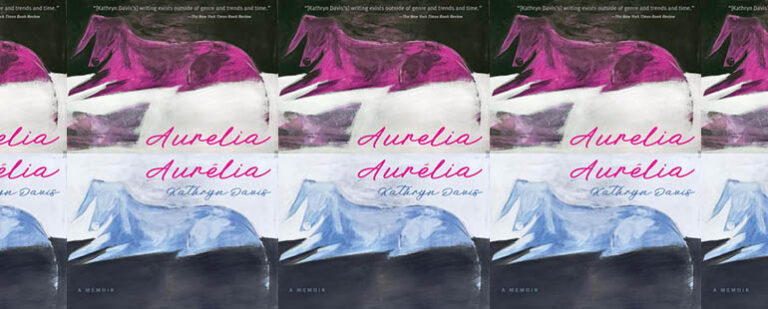The Contradictions of Love in Love in a Fallen City
Poets and writers alike have long been captivated by love and its many facets. In the collection Love in a Fallen City, Eileen Chang continues this tradition. Translated into English from the original Chinese, published in the 1940s, by Karen S. Kingsbury (2007), Chang’s four novellas and two short stories are set in a changing China as traditions wane and Western influences increase, a turning point that serves as a fitting backdrop for characters caught up in the contradictions of love. Chang portrays love as having a dual nature, often experienced as hot or cold, and her stories reveal what can happen as people navigate these opposing forces.
The collection opens with “Aloeswood Incense: The First Brazier,” a novella that centers on Ge Weilong, “a very ordinary Shanghai girl,” and her relationship with her scandalous aunt, Madame Liang. At first, Weilong moves in with her aunt so she can continue attending school in Hong Kong rather than moving back to Shanghai with her family, but she soon becomes a society pawn in her aunt’s parlor games. She unexpectedly ends up falling in love with Madame Liang’s own former paramour, George Qiao, a man known for his trysts, lack of money, and family disapproval. Weilong knows that her future with him is doubtful, but her feelings remain. In one scene, Weilong’s thoughts linger on “all of George’s delightful little gestures . . . and her heart grew soft and warm. Her heart grew hot, but her hands and feet were very cold. First hard, then soft, a current of cold happiness raced through her body, while outside . . . the rain blew hard, then soft, then hard again.” With this description, Chang raises a theme that will carry through the remaining stories: love often exists in a state of contradiction.
If unsure love is hot or cold, then a failure of love often leaves cold in its wake. The second piece, “Jasmine Tea,” and fourth, “The Golden Cangue,” both center on what happens when love fails. In “Jasmine Tea,” a young student is plagued by how he “knew very little about his mother, but he did know that she had never loved his father. And so his father hated her. After she died, he turned his fury against her child.” He becomes consumed by resentment, “brooding endlessly on his pain and the reason for it,” and in the end feels “as if a shell of ice had frozen across his face. His body was encased in ice too.” Similarly, in “The Golden Cangue,” a woman named Ch’i-ch’iao marries without love and eventually gives the impression of being like “a mad person. For no reason there was a chill in all his hairs and bones.” Rather than seeking love, these characters dwell on its lack, eventually becoming frozen and unable to experience it.
In other pieces, Chang explores what happens when love is present but somehow unattained. “Sealed Off,” for example, is a short story that focuses on a chance meeting between two strangers on a streetcar, a moment that deepens to the point where one of the strangers feels that “her husband could never be as dear as this stranger met by chance . . . this man on a tram in the middle of a sealed-off city . . . it could never be this natural again. Never again.” But the man is married and the moment passes, leaving them with a memory of when “he looked at her, and she blushed. When she let him see her blush, he grew visibly happy . . . They were in love.” The novella “Red Rose, White Rose” similarly centers on a man caught between the “two women in [his] life: one he called his white rose, the other his red rose. One was a spotless wife, the other a passionate mistress.” It is an old view on women, and the result of maintaining this dichotomy is like a “lamp and . . . hot water thermos [swept] off the little cabinet . . . cracked wide open, smashed to bits.” Unfulfilled love, Chang says, is associated with warmth—but it is also incomplete, bits and pieces rather than a whole.
The title novella encompasses many of these themes as it follows Bai Liusu and her romance with Fan Liuyuan, but the results are ultimately different. When the narrative begins, Liusu is the divorced Sixth Sister of her household, lacking both money and status. Her former husband dies, and a matchmaker appears to arrange marriages for Liusu and her Seventh Sister. Liusu is offered a widowed man with five daughters while her sister is set up with rich businessman and reputed playboy Liuyuan. Arrangements are made for Seventh Sister and Liuyuan to meet, but during the outing, Liusu somewhat inadvertently seduces Liuyuan by dancing with him. As her actions disrupt the matchmaker’s carefully laid plans, the matchmaker responds by inviting Liusu to Hong Kong, claiming to need companionship and help. Liusu suspects this arrangement has something to do with Liuyuan, but “decide[s] to wager her future. If she lost, her reputation would be ruined . . . . If she won, she’d get the prize the whole crowd was eyeing like so many greedy tigers.” At this juncture, Liusu’s motivations are calculating in nature. She may have danced with Liuyuan, but her interest is in the security that marriage to him would provide. Love is a means to an end for her, nothing more.
When Liusu and Liuyuan meet in Hong Kong, their courtship continues. Liuyuan is seemingly open with his intentions: “‘I’ve been waiting here for you,” he tells Liusu upon her arrival, and he endeavors to sweep her off her feet with a series of social engagements and private outings. He can afford to be free with his emotions, but Liusu has no such options. At times she feels “she was dreaming if she thought he’d marry her . . . Clearly, he wanted her, but he didn’t want to marry her.” This back-and-forth relationship continues for several months, and then one night Liuyuan calls Liusu in the middle of the night: “‘I love you,’ he said. And hung up…No sooner had she hung up than it rang again…Liuyuan said, ‘I forgot to ask—do you love me?” During this heady interaction, Liusu’s “body was covered with sweat . . . her palms were ice-cold,” but she still demands, “‘Why not go ahead and just say, flat out, that you don’t want to marry me, and leave it at that!” Liuyuan speaks of love while Liusu speaks of marriage, and their courtship remains a conflict between genuine emotion and the niceties of societal game playing.
Despite her misgivings, Liusu eventually moves with Liuyuan into a new home, feeling secure enough in their potential future together. At this point, the novella’s plot has moved along the expected points for a romantic drama, but then it abruptly twists. With Liuyuan set to sail to Singapore for a trip, Liusu arrives at her new home “on December 7, 1941. On December 8, the bombing started.” The Japanese bombed Hong Kong during WWII—life in the city is shattered. Liusu remains at her new home in a panic, but Liuyuan returns for her a few days later. They set out to find food and shelter and during their journey, when “Liuyuan was hot from walking, he took off his coat . . . but his back was still covered with perspiration. ‘You’re too warm,’ Liusu said. ‘Let me take it.’ Before Liuyuan would never have agreed, but now he wasn’t so chivalrous; he handed his coat to her.” Chang’s themes of hot and cold are still present, but those old society norms have been set aside in favor of more natural reactions. Amid the wreckage, Liusu and Liuyuan find that “when one person seems to have two bodies, danger is only doubled . . . She knew Liuyuan felt the same way. Now all she had was him; all he had was her.” The former duality of love has finally been united, albeit by calamity.
Many forms of love are present in Love in a Fallen City, but there may be one image from the title novella that gathers them all together. In the days after Hong Kong is bombed and Liusu and Liuyuan are rebuilding their lives, there is a night when Liusu feels that:
In this uncertain world, money, property, the permanent things—they’re unreliable. The only thing she could rely on was the breath in her lungs, and this person who lay sleeping beside her. Suddenly, she crawled over to him, hugging him through the quilt. He reached out from the bedding and grasped her hand. They looked and saw each other, saw each other entirely. It was a mere moment of deep understanding, but it was enough to keep them happy together for a decade or so.
Warmth and cold are still present in this moment, but there is no conflict between them anymore. These elements exist together. As such, this scene may best encapsulate Chang’s visions of love, and a truth about the feeling itself: love is always a fallen city, something whole and improbable that rises out of the rubble and conflict around it.
This piece was originally published on October 26, 2020.


